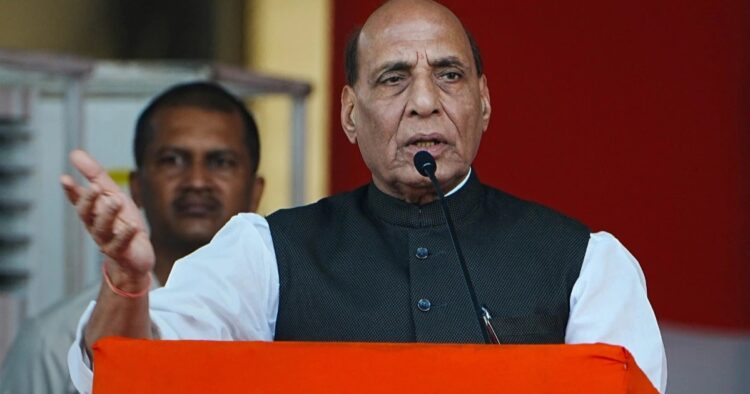In a significant move, Defence Minister Rajnath Singh has given the green light to a proposal aimed at providing support to cadets who have been boarded out of military training academies due to medical reasons. The decision, announced by the Ministry of Defence, is set to extend eligibility for schemes run by the Directorate General Resettlement (DGR) to these cadets, ensuring a brighter future for them.
According to the ministry statement released on Saturday, this decision is expected to benefit approximately 500 cadets who have been medically boarded out, granting them access to various schemes under the DGR. Moreover, it ensures that future cadets facing similar circumstances will also be entitled to these benefits, emphasizing inclusivity and support within the armed forces.
The proposal, which originated from the Ministry’s Department of Ex-Servicemen Welfare, signifies a proactive step towards addressing the needs of cadets who, despite their aspirations to serve the nation in uniform, face unfortunate medical setbacks during their training.
Among the schemes encompassed by the DGR are opportunities related to coal loading and transportation, management of fuel outlets, allocation of Mother Dairy booths and shops, operation of CNG stations, security agencies, and technical services. This expansion of resettlement facilities aims to provide diverse avenues for career transition and economic stability to the invalidated cadets.
The statement elaborated that the decision reflects an understanding of the challenges faced by cadets who join military academies at a young age with a firm dedication to becoming officers in the armed forces. While their aspirations are noble, the reality of medical invalidation poses a significant obstacle to their career paths.
It was noted that approximately 10 to 20 cadets are boarded out each year due to medical reasons linked to their military training. The move to extend resettlement facilities is poised to alleviate the concerns of cadets and their families, addressing a long-standing demand for opportunities beyond military service.
However, the statement did not address whether these cadets would be eligible for disability pension, a matter that has been under consideration by the service headquarters for some time. While this decision marks a crucial step forward in supporting invalidated cadets, further discussions may be required to address additional concerns regarding their financial well-being.
In conclusion, Defence Minister Rajnath Singh’s approval of the proposal underscores the government’s commitment to supporting and empowering individuals who have dedicated themselves to serving the nation. By extending resettlement facilities, the Ministry of Defence aims to provide a safety net for invalidated cadets, ensuring that their contributions to the armed forces are honored and their futures remain bright.

















Comments